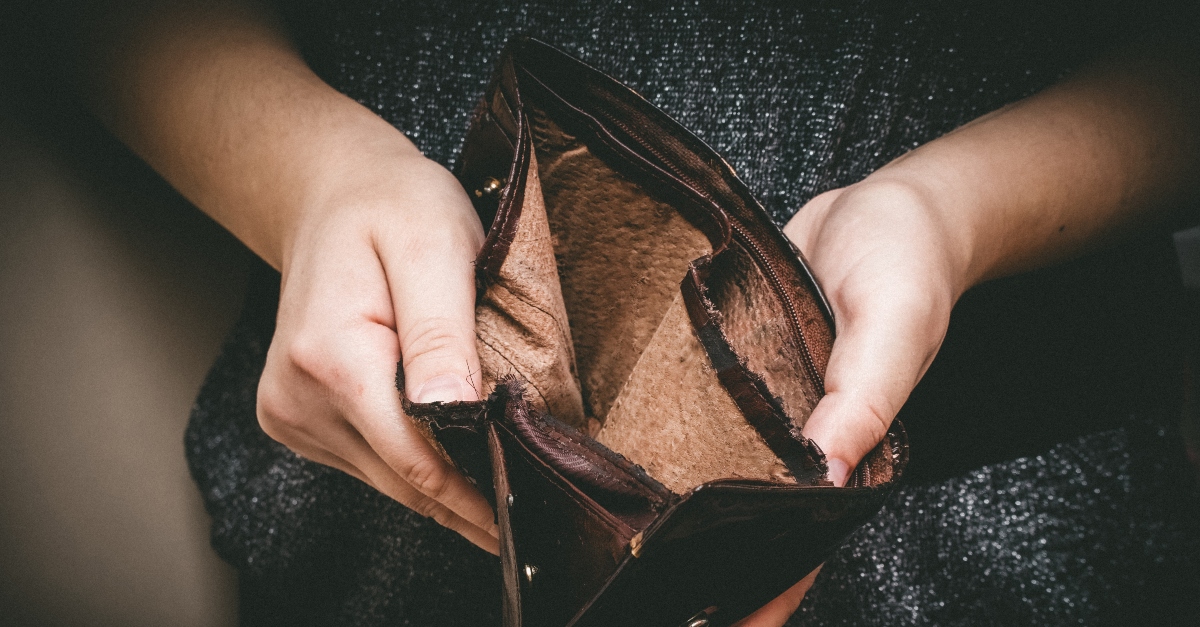He Who Has No Money, Come and Buy

What is the invitation of God that is extended to us?
“Come, everyone who thirsts,
come to the waters;And he who has no money,
come, buy and eat!Come, buy wine and milk
without money and without price”
(Isaiah 55:1).
“The Spirit and the Bride say, ‘Come.’ And let the one who hears say, ‘Come.’ And let the one who is thirsty come; let the one who desires take the water of life without price” (Revelation 22:17).
We are first asked to come to God; we are asked to approach Him—and we are not instructed that we may come in any manner whatsoever to find drink, but are told to come particularly as seeking Him with thirst. And then, we must look to Christ in humble expectation of Him being the water for which we thirst—that He is our eternal life and that His will for us to drink of Him and be rewarded. He is the life-water to our souls.
The theme of thirst, or neediness, is reiterated in Isaiah 55:1: come, he who has no money. We come with pockets empty; we come without way to pay for the help we need. We see that our hearts are desperately wicked—that we cannot tame them ourselves, that our only hope is a power outside of ourselves. We come with no money, but when we come in that manner, we find that we are gifted the right to buy! We come and find that we are able to receive; that the life and power we need are free to us, extended. We receive without money and without price. We eat and drink—richly.
Yet, how many objections the human heart can entertain with regard to this invitation! We can claim that we do have money we want to bring, or that buying without money and price makes no sense to us. We can believe that we have our own waters. Or, we can wish there to be another way to heaven, one far more dependent upon our work ethic and capabilities.
Let us consider these kinds of objections:
1. How Do We Divest of Our Funds so That We Can Come?
We see that our currency—the good works we produce of ourselves—is not accepted in the divine bank. The good works that are produced in accordance with our human nature are filthy (Isaiah 64:6), for they are performed without faith in Christ (Hebrews 11:6). Therefore, our own works are of necessity fallen—they are short of God and His glory (Romans 3:23). They are not worship—at least, not of Him. And that reality makes them filth because Jesus Christ is God. Without the Son, without faith in the Son as our Savior and our God, the Father cannot accept our deeds. We are made for adoration of this Person in all that we are and do. The question of our life, our eternity, is and can only be a question about Jesus.
In short, of ourselves we actually have no funds of which to divest.
2. How Do We Understand the Transaction?
Not only do we have no funds, but we must then accept the transaction for living spiritual water as God has stated it. We purchase without money and without price. We are invited to come—to buy. And we are told that we can buy, but must do so without money of our own. In human terms, the transaction seems unviable.
But it’s not.
The exchange of grace is possible because we can become one with Christ, the perfect and righteous Son. Our deeds are offensive to God; our deeds, without Christ, can only merit eternal damnation because no one can be good of his or her own life and ultimately succeed or stand before the divine court. There is only One God-Man whose works stand. He on the cross has paid the price for our sins and rebellion. The right to buy is placed into the hands of those who believe in Jesus—that is, the power of God, that unites us with the Son (John 1:13).
Nothing do we offer Him, and in that nothingness we are to come with faith in Him. Just as works not done with faith in Christ cannot be acceptable to God, so faith without Christ cannot be acceptable by God. We cannot place faith in ourselves, or faith in our faith. Rather, we decide to follow Jesus, choose to come to Him as He is—our Savior and King. Approaching Him as He is, we realize we can do no less that say our lives are His, to be led and directed by Him according to His will, belonging to the God who made us and owns us.
The choice we make contains within it nothing contributive to God or our salvation. The only merit is Christ, who has become—by God’s grace—life in our sights. We buy without money—bank accounts empty. And we buy without price—we could never afford the drink and food of eternal life (John 6:52-58).
This transaction is grace.

Photo credit: ©Getty Images/Stas_V
3. How Can We Buy?
We come before the Father, and believe—“Nothing in me or of me I bring, but here, I come claiming Christ. You have said that You will accept me through Him. And you do.”
For anyone who would believe, God has given us the right to become one with the Son—to become His children (John 1:12). He gives the right to buy—it is all grace. He enacts the oneness through His power—it is all grace. We receive the One whose righteousness and goodness satisfied God’s wrath and satisfied needy us—it is all grace. And He pervades us with His perfect holiness, goodness, and righteousness so that we are acceptable to the Father—it is all grace.
In Christ, then, we become wealthy in our spirits. We don’t claim our works for our standing before the Father, but Christ’s. We come to our Lord for more and more, coming again and again in our need. “I claim Christ, once again!” And we eat. “I claim Christ again today.” And we have the riches of God as our own. “I thirst.” And we come to the waters of God by which we are given our reason to never thirst again.
4. How Can We Return?
Have we been drinking from other wells? God tells us to seek Him, to return to Him:
“Seek the Lord while he may be found;
call upon him while he is near;let the wicked forsake his way,
and the unrighteous man his thoughts;let him return to the Lord, that he may have compassion on him,
and to our God, for he will abundantly pardon.For my thoughts are not your thoughts,
Neither are your ways my ways, declares the Lord”
(Isaiah 55:6-8).
If you are alive to read these words as one who has been far from the Lord, you are beckoned to return. Have you misused a decade of your life, or a lifetime? He will abundantly pardon. Have you wasted countless opportunities to return to Him, and overlooked His warnings? He will yet have compassion.
Does this grace make no sense to you? Then trust that His ways are not yours; his ways are higher. His grace is incalculable by human means. Believe Him, believe that His Word is true—He cannot lie—and call upon Him while He is near. Forsake your wicked way. Turn from your unrighteous thoughts. Forsake and turn in favor of Christ, high and lifted up—your King of glory, who may in this day be found. Have faith in Him.
Cast aside your means of empty earnings. Come to the waters. Buy with an empty bank account and without any contribution or work. Open your hands before Him with faith in Jesus Christ, and He will grant you right to buy—that you may eat and drink.
Matthew Henry writes,
“We must buy the truth, not that we may lay it by to be looked at, but that we may feed and feast upon it, and that the spiritual life may be nourished and strengthened by it. We must buy necessary provisions for our souls, be willing to part with any thing, though ever so dear to us, so that we may but have Christ and his graces and comforts. We must part with sin, because it is an opposition to Christ, part with all opinion of our own righteousness, as standing in competition with Christ, and part with life itself, and its most necessary supports, rather than quit our interest in Christ. And, when we have bought what we need, let us not deny ourselves the comfortable use of it, but enjoy it.”[1]
So come that your soul may live in the abundance of Jesus; he who has no money, come and buy.
[1] Henry, Matthew. Matthew Henry’s Commentary on the Whole Bible: Complete and Unabridged in One Volume. Peabody: Hendrickson, 1994.
More from this author
We Should Worship Jesus as the One Man
God Is Praised through Shouts of Joy
God Instructs Sinners in the Way We Should Go
Photo credit: ©Getty Images/kenzaza
Lianna Davis is author of Keeping the Faith: A Study in Jude and Made for a Different Land: Eternal Hope for Baby Loss. She is also a contributor to We Evangelicals and Our Mission with Cascade Books. Lianna is a graduate of Moody Bible Institute and a student at The Southern Baptist Theological Seminary. She lives in Illinois with her husband and daughter. You can learn more about her writing at her website.
Originally published March 11, 2022.





